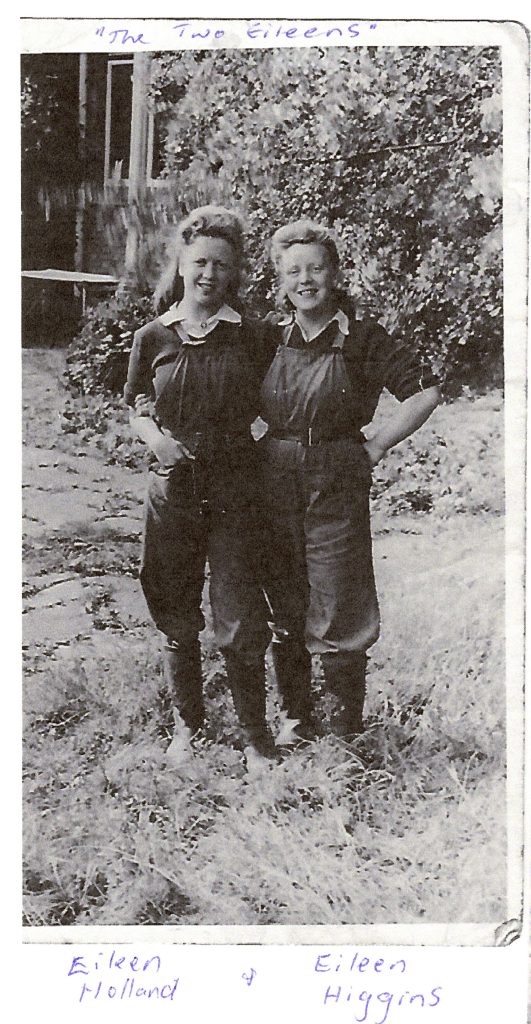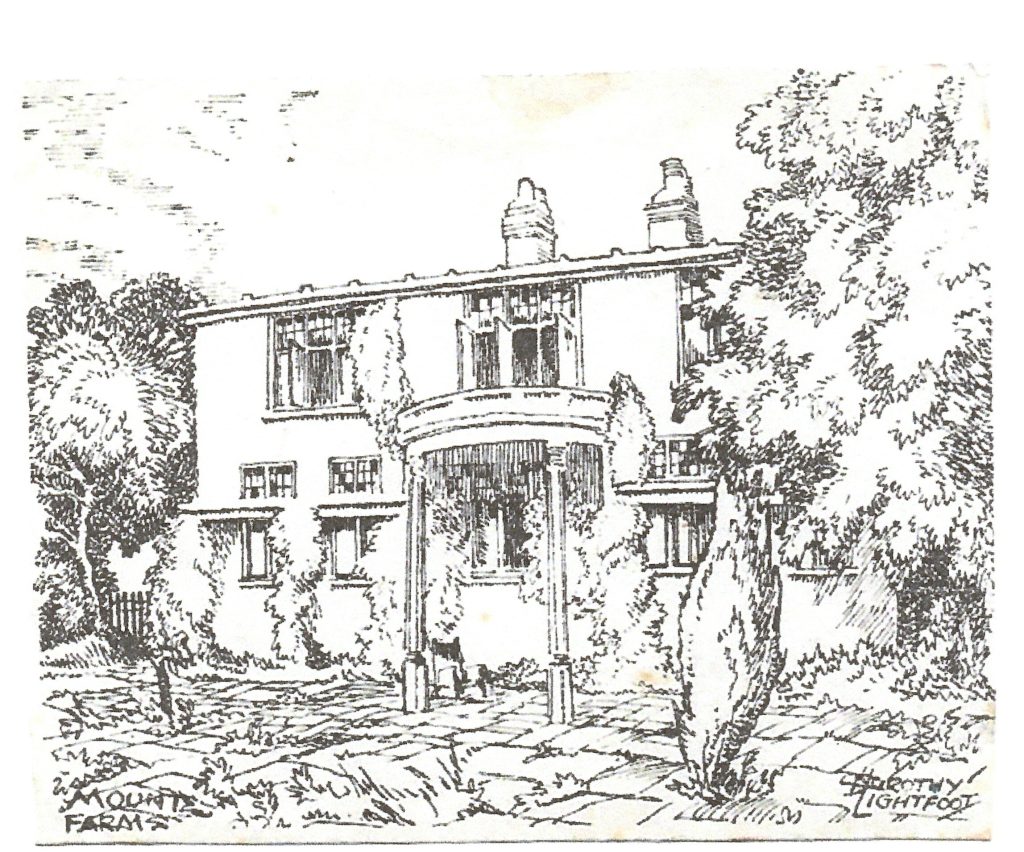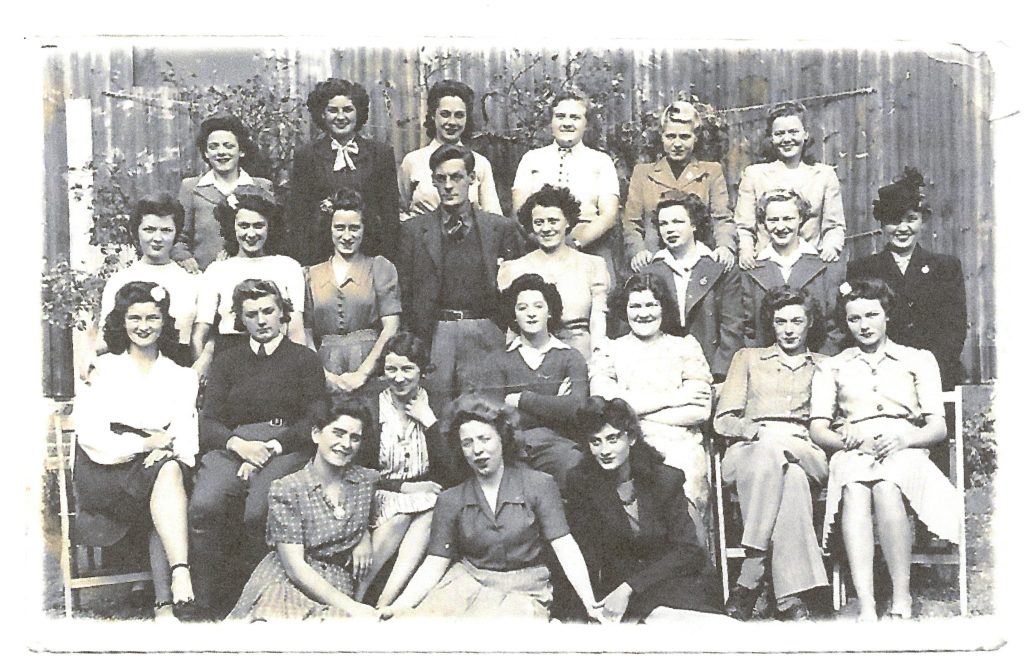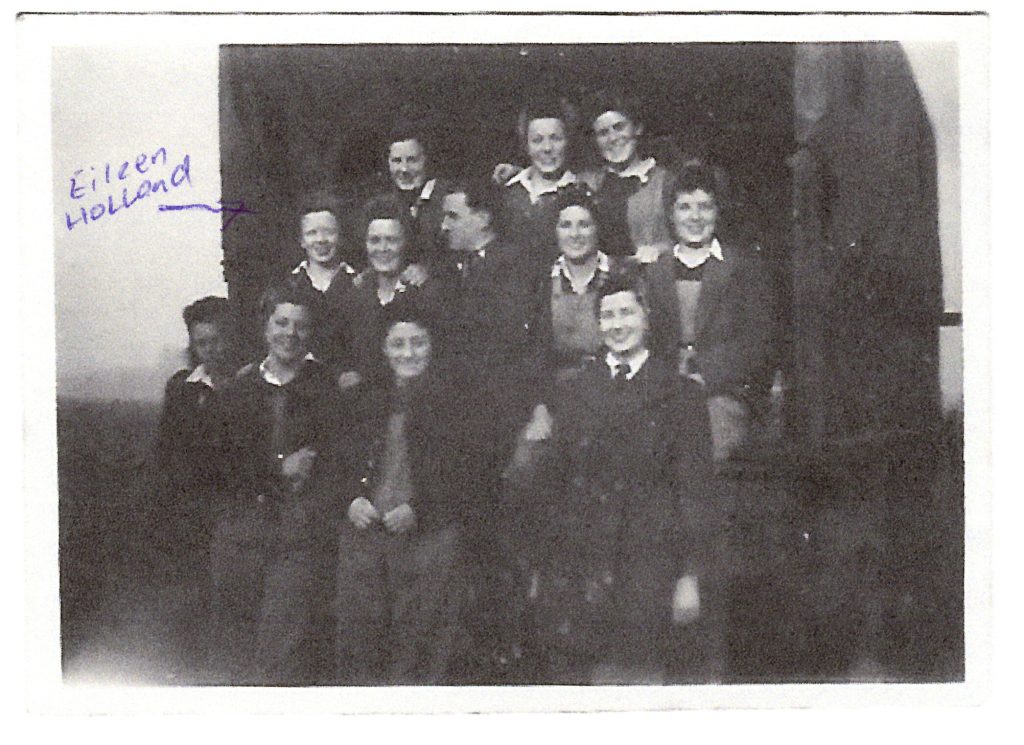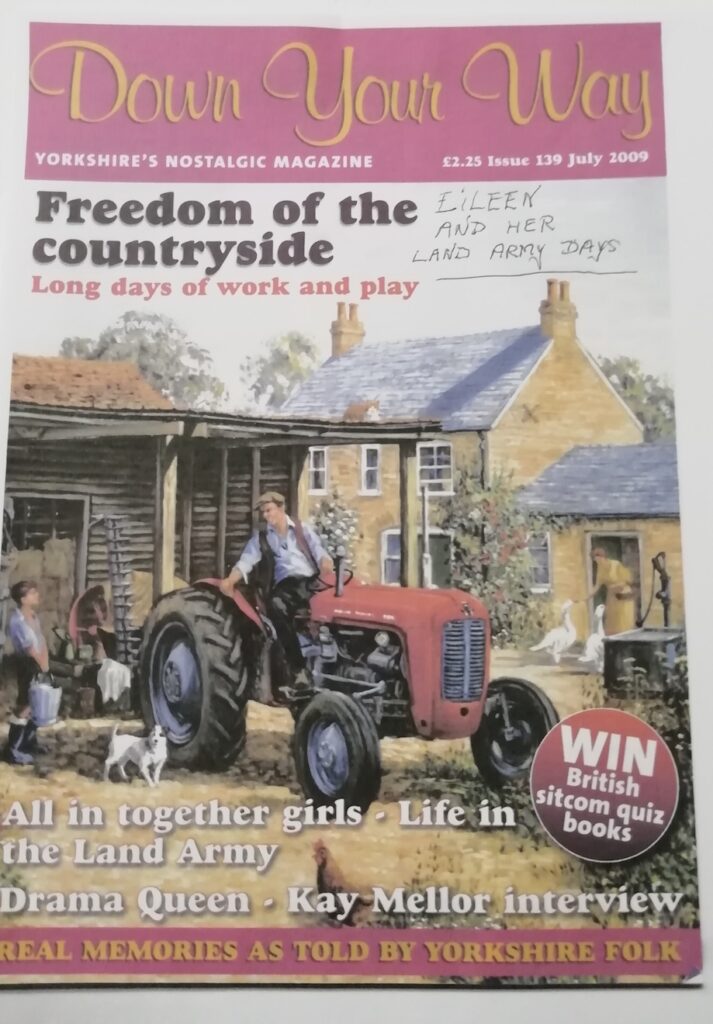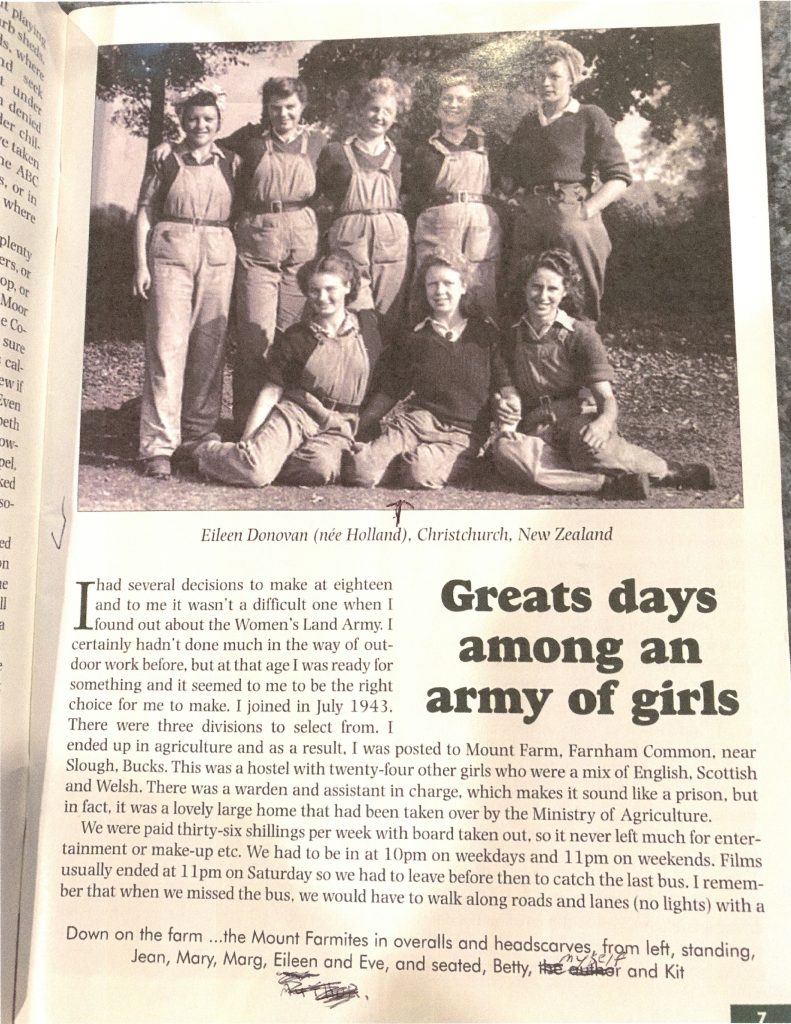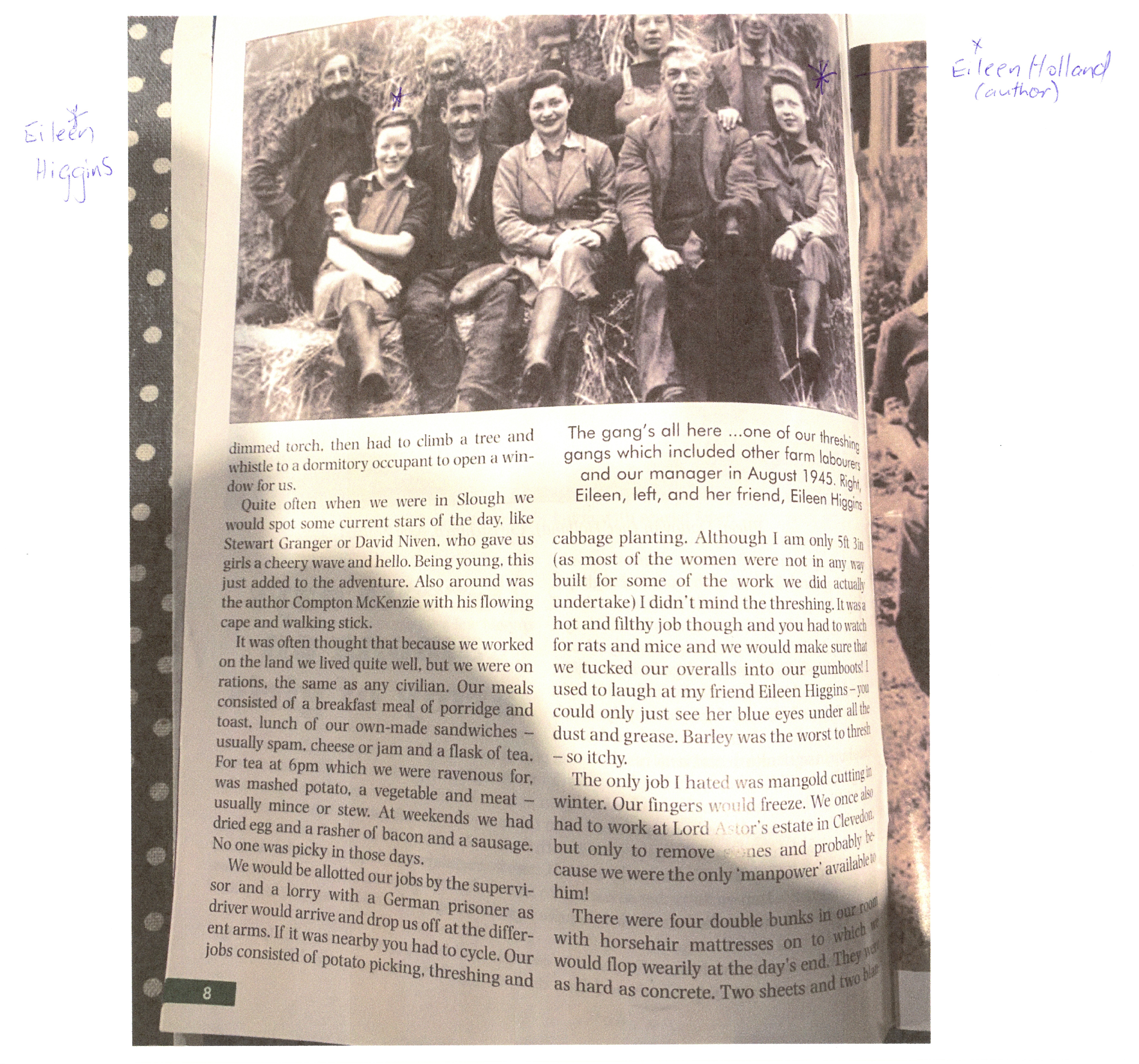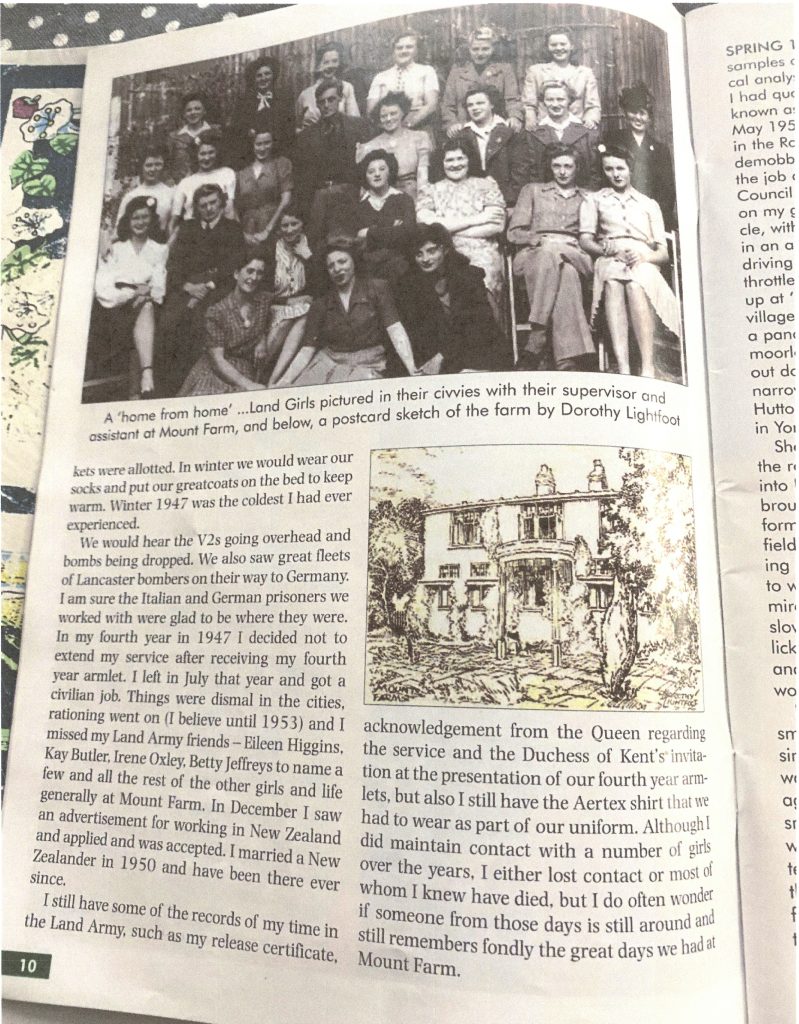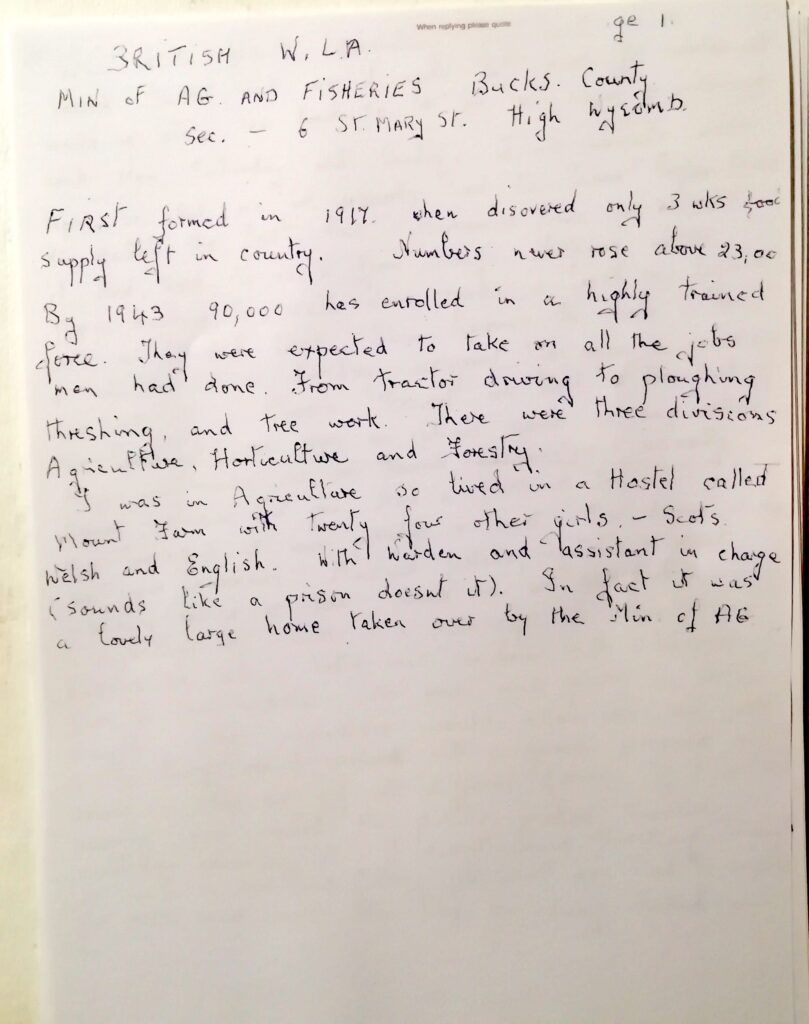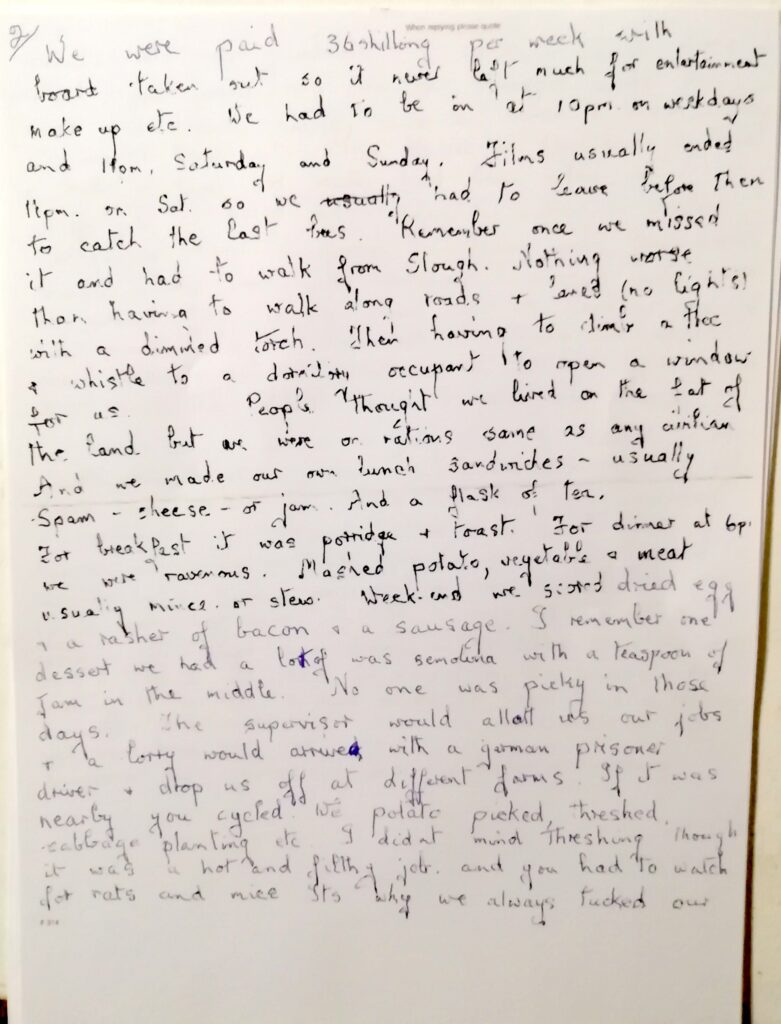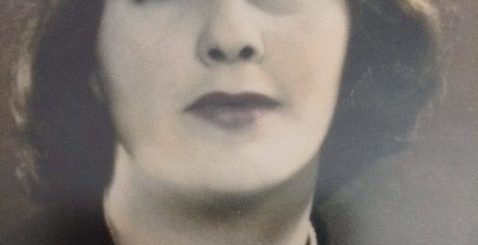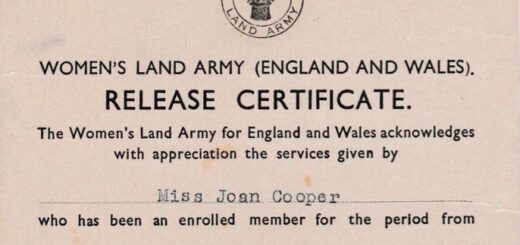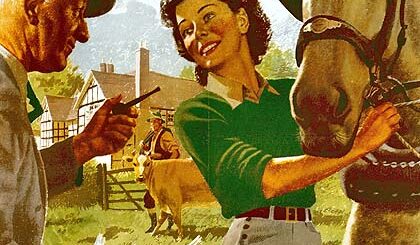Eileen Holland
General Information
First Name(s): Eileen
Unmarried Surname: Holland
Date of Birth: 30.11.24
Place of Birth: Middlesbrough, Yorkshire
Date joined WLA: July 1943
Date left WLA: 1947
WLA number: 135007
Reasons for joining: “Right choice”
Reasons for leaving: 1947 – perhaps it was time to move on. Perhaps men also coming back, then went back into those roles – but also went to get a “civilian job” – unsure where that was though
Reactions of local people towards WLA: Unsure – but initially suspect. They thought women wouldn’t be able to do those jobs.
Treatment by farmers or market gardeners: Hopefully okay. They were just wanting in the end good enough workers to help. Mum must have worked reasonably hard as she kept being asked for by a/one farmer.
Employment
Worked on Mount Farm, Farnham Common, Near Slough, Bucks.
Work liked most and least: Threshing – didn’t mind. Mangold cutting the least.
Any accidents or injuries: Unsure. But my mother did get very bad sunstroke, she also got very bad shingles which she still remembered the pain from.
Best and worst memories: She didn’t ever relate worst memories – but camaraderie from other girls + matron + workers all remembered with fondness.
Any names of other Land Girls or others worked or shared accommodation with:
Eileen Higgins
Nancy Gallagher
Kay Butler
Kath Wingrove
Irene Oxley
Margaret Riley
Betty Holmes
Emma Fisher
Eve
Marg Vallance
Peggy Sullivan
Ivy Stone
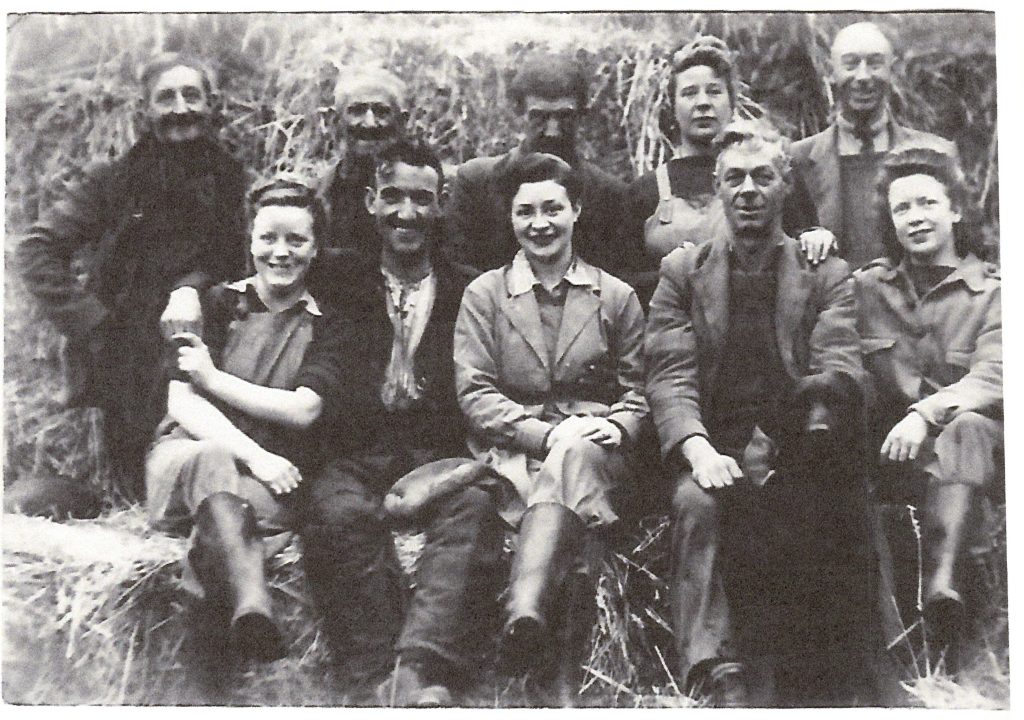
A threshing gang which included other farm labourers and manager in August 1945. Right, Eileen Holland, left, and her friend, Eileen Higgins.
Life after the war
Post-war occupation: Came to New Zealand. Worked at Roslyn Mills, Dunedin, NZ
Did they stand on the land: No.
How did work in the WLA effect their life? My Mother indicated it was the best time of her single life.
Any outstanding achievements: Came to NZ worked at a Mill in Dunedin, joined a marching team which did very well, married, had 4 children. Didn’t return to working on the land though. Did a few other jobs, but then went back to Roslyn Mills until she left in or about 1977.
Any other comments on time in the WLA: Definitely a time of breaking away from North of England and being with peers – but just the camaraderie of those peers + made life long friends, unfortunately she never got to the attend the reunions.
I think also what she got out of it was the camaraderie but also meeting different counties of girls, farmers etc. She may not have been the only one from the north but imagine her accent (although never a strong one) was a novelty. She kept in touch with one or two over the years of those women and did visit one or two in 1972 when she went for one of her visits. The article in the magazine (see below) resurrected another of those named and they corresponded until a few years prior to mum’s death as the woman had gone into a nursing home.
I suppose to add that a pity recognition so late in the piece by the British Government, as by the time that they came to recognise those services, a lot of the women had died and their stories lost with them or if still alive, forgotten in the mists of time. But these women just got on with it. I suspect many would just say “they were only doing their job”.. With my mother it was far removed from any work she had done previously and being outdoors for any length like that was quite uncommon. She of course had gold blonde/red hair with very fair skin, so not the ideal complexion for the outdoors!
The irony also is there would be minimal “health and safety rules” aspects to the work they had to do, so it makes it equally interesting but don’t recall my mother mentioning accidents or any mental instability – more physical exhaustion or sunstroke!
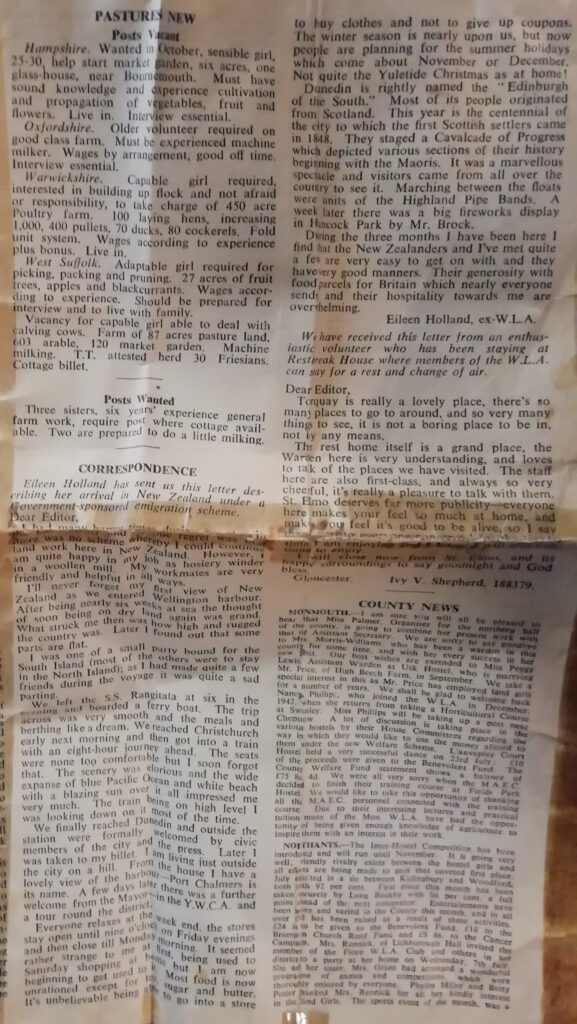
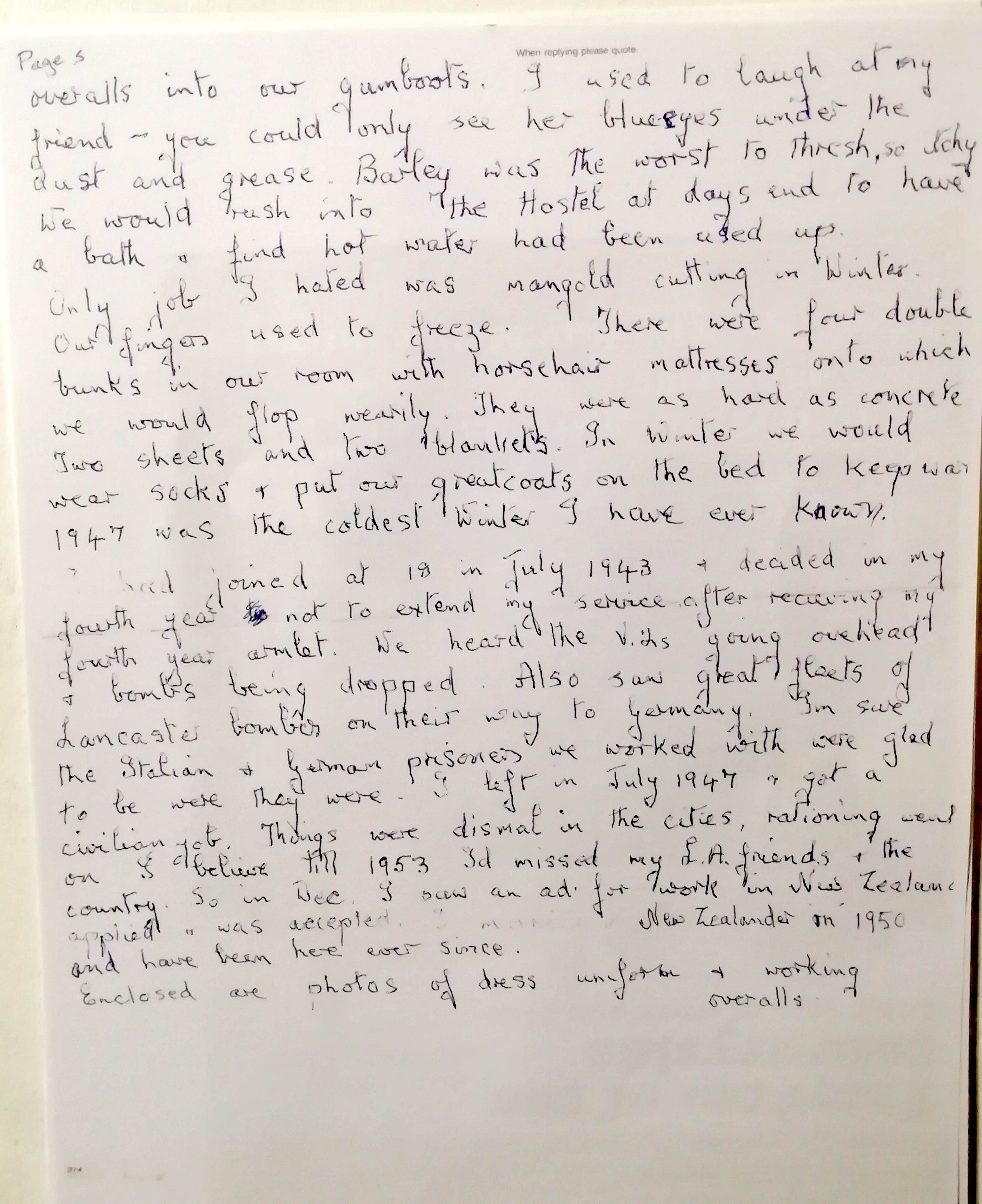
Contributor Information
Name: Maxine Donovan
Relationship to Land Girl: Daughter
